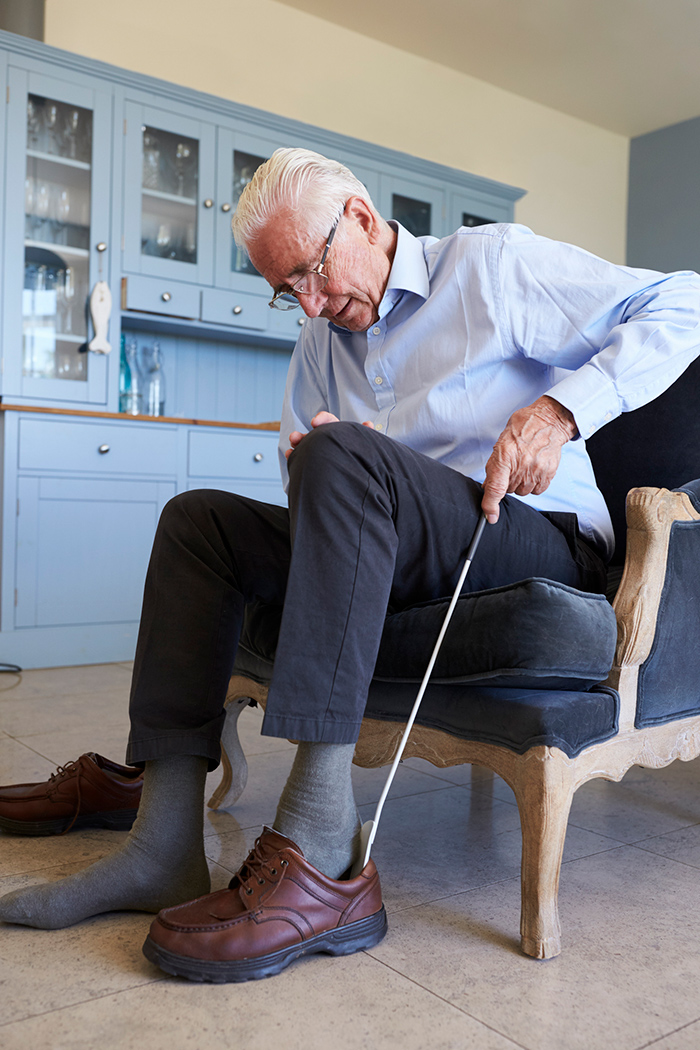Skills and Routines
Performance skills are observable, goal-directed actions and consist of motor skills, process skills, and social interaction skills. Performance skills are evaluated and analyzed by occupational therapists during actual activity performance, with real objects, in a natural context, and often in the presence of others.

Occupational therapists evaluate and analyze the performance skills of different types of clients:
- Persons: motor, process, and social interaction skills.
- Groups: process and social interaction skills.
Types of Performance Skills
- Motor skills: How a person moves themselves and their body parts and interacts with objects during activities. Examples include: positioning the body, obtaining and manipulating objects, moving self and objects, and sustaining performance.
- Process skills: How a person thinks and plans in order to perform activities. Examples include: applying knowledge, timing actions, organizing space and objects, and adapting performance.
- Social interaction skills: How a person communicates using verbal and nonverbal abilities. Examples include: initiating and terminating exchanges, adapting style to fit different types of social interactions, asking and answering questions, and expressing emotions.
When thinking about how groups use performance skills, occupational therapy practitioners need to consider the following:
- What outcomes are group members trying to achieve?
- Which performance skills are essential for the desired outcomes?
- How are performance skills used by the entire group?
- How are performance skills used by persons in the group?
- Is an intervention needed to address the group's performance skills?
- Is an intervention needed to address the performance skills of persons in the group?
Performance patterns
Performance patterns are the acquired habits, routines, roles, and rituals used in the process of engaging in occupations and can support or hinder occupational performance. Performance patterns are analyzed by occupational therapists to understand how clients use their time and the frequency and manner in which they engage in certain occupations.
Performance patterns:
- Help to establish lifestyle and daily routines,
- Support occupational balance in an individual’s day,
- Are influenced by context such as cultural norms, social calendars, and work hours.
Occupational therapists analyze the performance patterns of persons, groups, and populations.

Occupational therapy practitioners are concerned with 4 different types of performance patterns: habits, routines, roles, and rituals.
- Habits: Specific behaviors that are often performed automatically or without much thought. Habits may be healthy or unhealthy, efficient or inefficient, and supportive or harmful (e.g., taking rest breaks from screen work vs. on-screen activities for hours at a time).
- Routines: Sequences of activities that provide a structure for daily life. The sequence someone follows on a regular basis to get ready in the morning (e.g., toileting, bathing, hygiene, dressing) is an example of a routine.
- Roles: Aspects of the client's identity (e.g., parent, student, volunteer) that are shaped by a specific set of behaviors. Roles are guided by social norms, culture, and context. Roles help define who a person, group, or population is based on occupational history and future desires.
- Rituals: Sets of symbolic actions with spiritual, cultural, or social meaning that contribute to the client’s identity and reinforce values and beliefs. Many rituals are shared by groups and populations and hold traditional, emotional, and purposive meaning.
References
American Occupational Therapy Association. (2020). Occupational therapy practice framework: Domain and process (4th ed.). American Journal of Occupational Therapy, 74(Suppl. 2), 7412410010. https://doi.org/10.5014/ajot.2020.74S2001
Fisher, A. G., & Griswold, L. A. (2019). Performance skills: Implementing performance analyses to evaluate quality of occupational performance. In B. A. B. Schell & G. Gillen (Eds.), Willard and Spackman’s occupational therapy (13th ed., pp. 335–350). Wolters Kluwer.
Fisher, A. G., & Marterella, A. (2019). Powerful practice: A model for authentic occupational therapy. Center for Innovative OT Solutions.